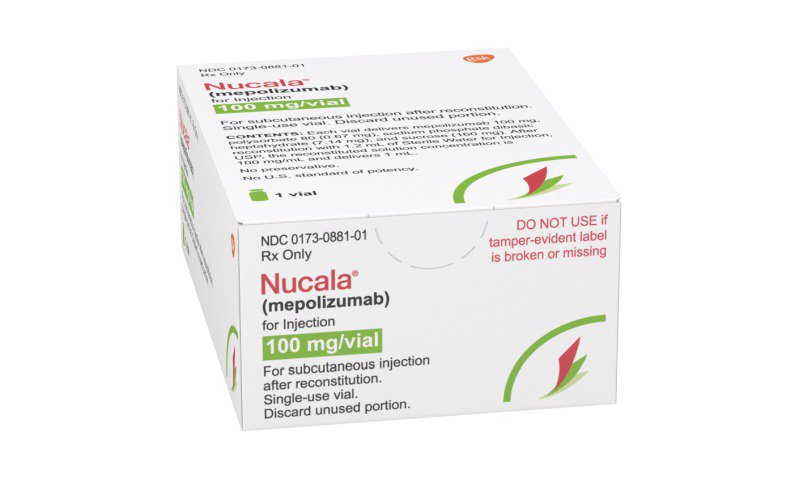
GlaxoSmithKline’s Nucala is facing an uphill climb in its battle for supremacy in severe asthma. On the hunt for a leg up, GSK is looking to real-world studies for a competitive advantage in Nucala’s sole indication—and it may have just scored one.
After 12 months of use, Nucala cut severe eosinophilic asthma attacks by 69% as an add-on treatment to corticosteroids, according to interim real-world data presented Monday at the European Respiratory Society congress in Madrid.
Patients in the study, dubbed Realiti-A, had taken only standard-of-care corticosteroids for 12 months before enrolling in the trial. Nucala was also shown to reduce the rate of exacerbations leading to hospitalizations and emergency room visits by 77% and allowed 34% of patients taking standard-of-care corticosteroids to stop using them, GSK said.
Realti-A is the first global real-world study investigating the use of a biologic treatment plus standard of care in severe asthma patients and is expected to wrap with full results in 2021.
According to Steve Yancey, GSK’s vice president and medicines development leader, the study’s results show “reassuring” data for patients and physicians in real-world settings—in particular, matching efficacy and safety profiles from clinical trials.
“I think it’s really important for both the physician and the patients to have a clear understanding of what they need from a biologic treatment,” Yancey said. “These sorts of data are compelling in that they match one another, and it provides a lot of reassurance about what we’ve been able to demonstrate.”
RELATED: GlaxoSmithKline’s Nucala scores convenience boost with at-home dosing options
With after-market results backing up Nucala’s clinical data, GSK aims to build its case for its drug against the competition.
As the company and others battle for market share, GSK recently won an FDA approval that gives its med a convenience edge over AstraZeneca’s Fasenra. The agency in June approved Nucala’s dosing as a self-administered autoinjector and prefilled syringe, meaning patients don’t need to travel to a healthcare practitioner for every injection.
Meanwhile, Fasenra and Regeneron and Sanofi’s Dupixent are keeping the pressure on with label expansion efforts and new approvals of their own.
RELATED: AstraZeneca’s Fasenra keeps the heat on GSK’s Nucala with new phase 2 data
In August, Fasenra scored an FDA designation as an orphan drug for eosinophilic esophagitis, an ultra-rare disease that currently has no approved treatments. The designation comes with seven years of exclusivity, apart from patent protection, among other benefits. A phase 3 trial in June showed Fasenra halved blood eosinophil counts in patients with hypereosinophilic syndrome (HES), another ultra-rare condition. Only 30% of patients taking placebo in the study reached that mark.
Nucala is moving ahead in HES itself with a phase 3 trial underway.
For its part, Dupixent has garnered some major backing after its approval in severe asthma in October, with one analyst positing the drug could hit $ 2.5 billion in peak sales in asthma alone. Dupixent is also approved in nasal polyps and severe asthma.
